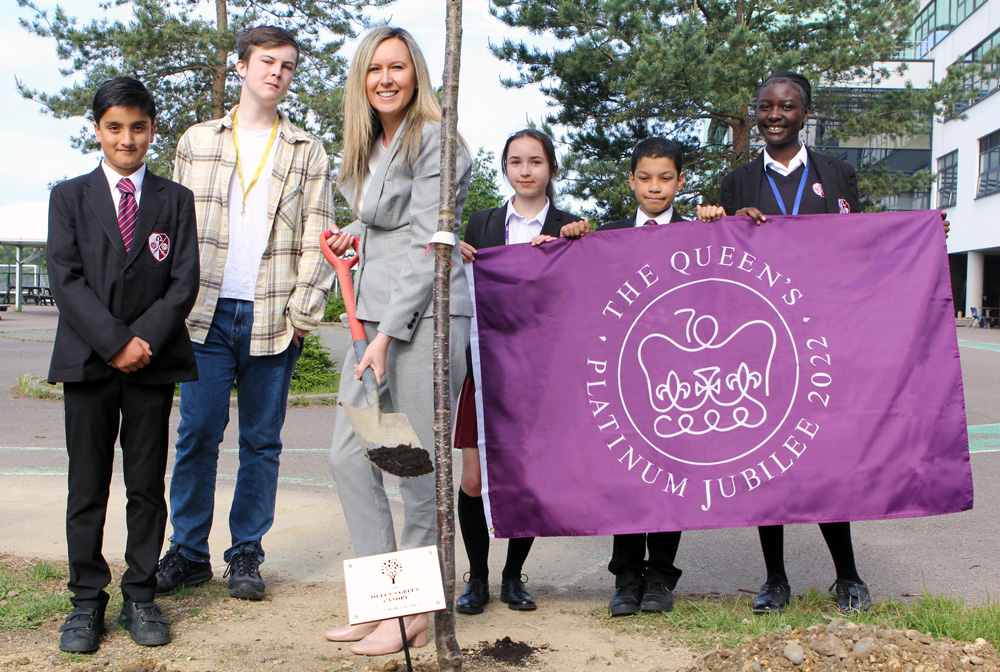The promotion of the values of democracy, the rule of law, individual liberty, mutual respect and tolerance of those of different faiths and beliefs permeate the work of the school.

As a culturally diverse school, we recognise the multi-cultural, multi-faith and ever-changing nature of the United Kingdom. We follow equal opportunities guidance which guarantees that there will be no discrimination against any individual or group. Our curriculum and extra-curricular activities prepare children for life in British Society; this includes developing the skills they need, particularly reading and writing skills; understanding personal finance and career pathways; collaboration and discussion to research ideas and concepts.
At East Barnet School the principle of democracy is consistently reinforced through the curriculum and beyond. Students have the opportunity to have their voices heard through our Student Leadership programme and student questionnaires. We know that the active participation of our students in the election of representatives will sow the seeds for a greater understanding of democracy in the future. Through the work of the school, students understand that the rules and laws that govern the class, the school, the neighbourhood or the country are set for good reasons and must be adhered to.

Students are taught the value and reasons behind rules and laws; that they govern and protect us; the responsibilities that this involves; and the consequences when laws are broken.
We allow opportunity to debate and discuss the reasons for laws so that children can recognise the importance of these for their own protection. Throughout the year we welcome visits from members of the wider community including police, magistrates, local representatives of different faiths, Holocaust survivors and many more. We believe that clear explanations and real-life stories emphasise the importance of the rule of law for our students. We see value in investing in the creation of a positive culture in our school, so that students are in a safe environment where choices and freedoms are encouraged.
At East Barnet School we believe that valuing choice and freedom in daily school life will foster a value for individual liberty as the students embark upon their adult lives. As a school we educate and provide boundaries for students to make choices safely, through the provision of a safe environment and an empowering education. Students are encouraged to know, understand and exercise their rights and balance this against their responsibility as citizens in the wider community.
Mutual respect is at the core of our school life. Students learn to treat each other and staff with respect. Students learn that their behaviours have an effect on their own rights and those of others. In line with our commitment to democracy, students are always able to voice their opinions and we foster an environment where students are safe to disagree with each other. Mutual respect is embraced throughout the curriculum and assemblies. The peer mentoring programme promotes mutual respect and support between students across different year groups within the school.
East Barnet School is a culturally diverse school. We strongly believe that tolerance is gained through knowledge and understanding. This is achieved through equipping students with the ability to understand their place in a culturally diverse society and by giving them opportunities to experience such diversity within the school community. Through our curriculum and the routines of our daily school life, we strive to demonstrate kindness, integrity and respect, and help students to become knowledgeable and understanding citizens who can build a better Britain. This statement should be read in conjunction with the Child Protection Policy, which is, in part informed by the Prevent Strategy in equipping staff to identify signs of extremism and radicalisation and to take appropriate action to safeguard students.